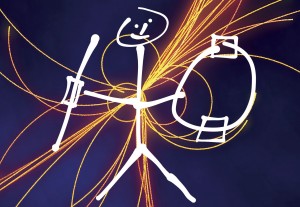 It may feel like only yesterday that the update of the European Strategy for Particle Physics was adopted, but preparations for a new one, planned for 2018/19, are already underway. Germany has now published its first conclusions from a workshop on future electron-positron colliders that are very supportive of the ILC.
It may feel like only yesterday that the update of the European Strategy for Particle Physics was adopted, but preparations for a new one, planned for 2018/19, are already underway. Germany has now published its first conclusions from a workshop on future electron-positron colliders that are very supportive of the ILC.
The German community of particle physicists is represented by KET, the Committee for elementary particle physics (or Komitee für Elementarteilchenphysik if you need to know). At a KET workshop held in Munich in early May, participants took stock of and discussed options for electron-positron colliders that are currently on the table in order to form a strategy of the German high energy physics community based on consensus. Here are their conclusions:
1. The physics case for a future e+e- collider, covering energies from Mz up to the TeV regime, is regarded to be very strong, justifying (and in fact requiring) the timely construction and operation of such a machine.
2. The ILC meets all the requirements discussed at this workshop. It is currently the only project in a mature technical state. Therefore this project, as proposed by the international community and discussed to be hosted in Japan, should be realised with urgency. As the result of this workshop, this project receives our strongest support.
3. FCC-ee, as a possible first stage of FCC-hh, and CEPC could well cover the low-energy part of the e+e- physics case, and would thus be complementary to the ILC.
4. CLIC has the potential to reach significantly higher energies than the ILC. CLIC R&D should be continued until a decision on future CERN projects, based on further LHC results and in the context of the 2019/2020 European Strategy, will be made.
Read the conclusions including footnotes on the KET website.

Recent Comments